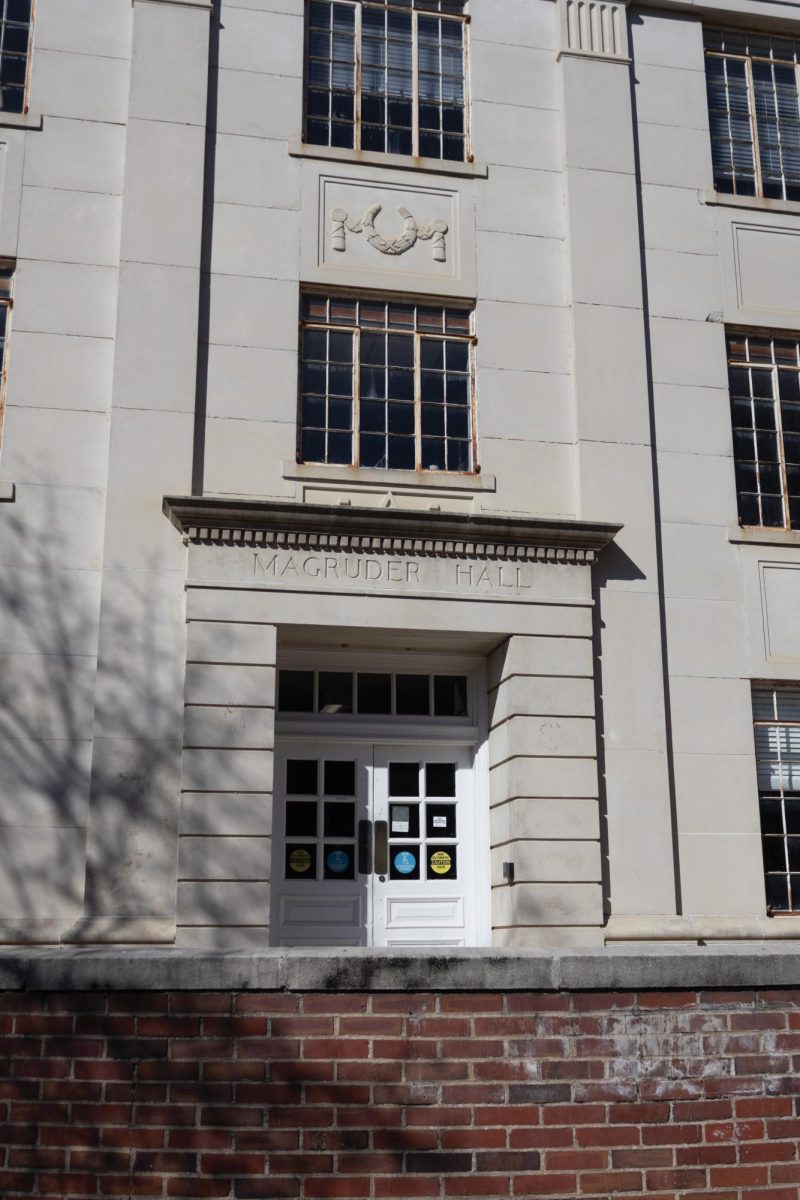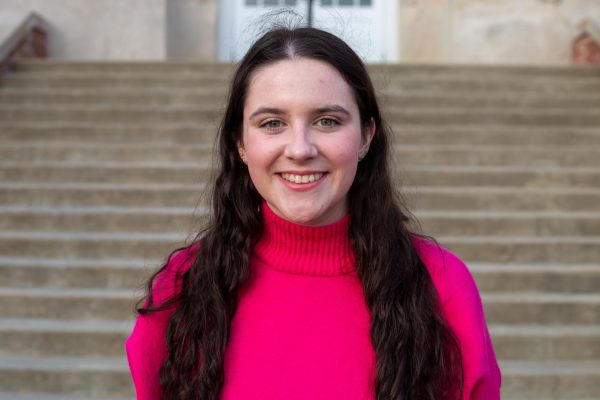In the eighth grade, Aidan Levy took a family trip to Vicksburg, Mississippi, where he admired the beauty of the aging mansion the family was staying in. However, as he observed the neglect and disrepair the home had fallen into, Levy realized that he wanted to pursue a career in historical preservation.
Struggling to find the right program for his career goals, Levy changed his major five times. Eventually, Levy decided to pursue a Bachelor of Science in Interdisciplinary Studies (BSIS) with concentrations in history, interior design and business at Mississippi State University. The current junior said the interdisciplinary studies program allows him more freedom in making his schedule and tailoring it to his interests, but he finds that not many people know a lot about the program.
“I’ve told everybody, I feel like I’m getting the full college experience,” Levy said. “I’ve been an art student. I’ve been an architecture student. I’ve been a trade student. I’ve been everything. So, I feel like I’m really getting the most for my money because I’m getting everything in one degree.”
MSU has a thriving interdisciplinary studies program, and a new college, MSU’s College of Integrative Studies, is being introduced to campus aiming to provide traditional degree options that combine various disciplines.
Jamie Dyer, Dean of the College of Integrative Studies, holds a doctorate and a master’s degree in geography, as well as a bachelor’s degree in physics. He leads MSU’s 10th college. The Mississippi Board of Trustees of State Institutions of Higher Learning officially approved the College of Integrative Studies on Feb. 21.
Where the BSIS allows students to choose from different concentrations and tailor their schedules to their personal liking, the College of Integrative Studies is different. The new college is looking at the career field to find what skills are needed. The college will house independent degrees that integrate multiple disciplines and into one path. It focuses on taking advantage of available knowledge already found on campus for a degree that better prepares students for integrative jobs in the workforce.
“You have a problem to solve,” Dyer said. “Multidisciplinary is you have 10 experts from 10 different fields, and each one gives their opinion on how to solve the problem. So when you leave, you have 10 different solutions. Interdisciplinary is 10 experts sit at a table and you leave with one solution that combines all their expertise and approaches and thought processes.”
The project started in 2020, and finally, in 2025, the college was announced to the public. According to Dyer, talking with students and hearing their feedback has been a major part of the process. The first integrative program to be included in the college will be data science in fall of 2025 when Dyer said the college would begin work.
The college also plans to launch an integrative tourism program in the fall of 2026 and develop more integrative programs along the way to meet student needs.
“We hope they [the students] benefit by getting a degree that more closely matches what they want to do when they grow up and when they graduate,” Dyer said. “We find that information by talking to the industry, seeing what they’re looking for and asking them specifically, ‘What do you want a graduate to have, what skills and knowledge?’”
Kasondra Harris is the director of academic relations for the BSIS program at MSU.
Within BSIS, Harris collaborates with all the colleges on campus aside from the Bagley College of Engineering and the Veterinary Technology Medicine program. Harris helps students find a degree that supplies them with skills and classes from multiple majors. Harris holds a degree in General Studies from the Mississippi University for Women and a Master’s Degree in Psychology from Capella University. With her background, she understands the value of having diverse interests. She said that this experience allows her to recognize similar interests in her students.
“What I think it does for students is it makes them a good applicant on jobs when they have these multiple areas of study because of our global perspectives that are in the world now,” Harris said. “It makes them see they’re able to solve those problems on jobs that other candidates may not be able to solve by having just one focus area.”
Morgan Sumrall, a BSIS student with concentrations in criminology, psychology and business, has always had an interest in helping people. After three or four major changes, she decided on interdisciplinary studies after talking with her sister, who is also in the program.
Sumrall said that she has always looked up to her parents, her mother being a NICU nurse and her stepdad being a police officer, but after learning she did not fit in with the nursing field, she turned her sights to criminal justice. As a fan of “catching the bad guys” and “making the world a better place, one person at a time,” she now aims to help battered women and children who have been rescued from domestic violence homes or human trafficking and work for a nonprofit.
“I really think the biggest pro about interdisciplinary studies is the flexibility it gives me to shape my education around my interests and career goal,” Sumrall said. “I’m not saying a single focus couldn’t do that because it can. I guess it just kind of gives more ingredients for what you want. So, you can customize what you want to do with a certain degree and establish it in your career.”
Of the 350 students in the BSIS program, Harris splits the load with one other person and now advises around 175 of those students, a much larger number than the 50 students she used to advise. Harris said within the last year, the BSIS program has significantly grown with nursing students and people wanting to go into the physician assistant program. She said 25 to 30 percent of the BSIS students are going into health professions, and this major allows them to take the required classes along with other studies that make them competitive in the job market.
“My goal was to change the perspective of the program because when I came in a lot of people and students thought interdisciplinary studies was just a completer program,” Harris said. “They didn’t really utilize it for what most colleges use interdisciplinary studies for. But along with growing it and making it really great, comes much more work.”
Dyer said that the new integrative studies college is all about finding a way to integrate different subject areas into one combined program. He said he wants to give students one track that integrates all of their interests instead of giving them multiple paths at once to achieve their end goals. He said the college is invested in creating programs that don’t combine pieces of each subject but that are one program that has a core.
“The integrative programs I’m trying to develop are interdisciplinary from the first stage,” Dyer said. “So the courses integrate knowledge and skills from across campus. It’s not that you’re taking two tracks and then when you graduate you can have a little bit of both. So we’re trying to integrate from day one.”
Because Dyer wanted to know the why and how of things, he gained many different degrees in search of answers. Looking back, he said he might have benefitted from a program like this.
“I wouldn’t have taken them [certain classes] if I had been given more options instead of just checking a box,” Dyer said. “I would have taken something that perhaps would have opened up my eyes before I got into grad school which begs the question if this college could have existed and I could have taken the hydrology courses and the meteorology courses and physics courses, would I have even needed to go to grad school? Could I have graduated with everything I needed as an undergrad?”














